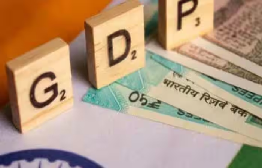Since India’s economic liberalization, southern states have outperformed northern states in GDP contribution and per capita income. A recent report from the Economic Advisory Council to the Prime Minister, featured in a Business Today article reveals how the southern region has surged ahead, reflecting a major shift in the country’s economic dynamics.
Karnataka, Andhra Pradesh, Telangana, Kerala, and Tamil Nadu collectively contribute 30 per cent of the country’s GDP, as highlighted in the report.
Which States Contribute Most and Least to India’s GDP?
Maharashtra continues to be the largest contributor to India’s GDP, although its share has dropped to 13.3 per cent from over 15 per cent previously. Despite this reduction, Maharashtra’s per capita income has risen to 150.7 per cent of the national average as of March 2024.
Delhi and Haryana have consistently performed well with Delhi boasting one of the highest per capita incomes. In contrast, Uttar Pradesh and Bihar have seen their GDP contributions decline notably. Uttar Pradesh’s share dropped from 14 per cent in 1960-61 to 9.5 per cent. Meanwhile, Bihar, despite being the third-most populous state, contributes just 4.3 per cent.
Odisha, however, has made notable progress, improving its economic standing. West Bengal, once a top contributor with 10.5 per cent of GDP in 1960-61 now accounts for only 5.6 per cent. Further, its per capita income has decreased from 127.5 per cent of the national average to 83.7 per cent, falling behind states like Rajasthan and Odisha.



